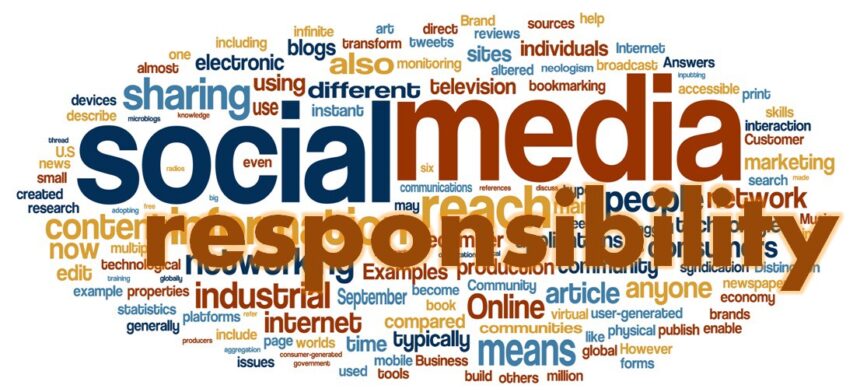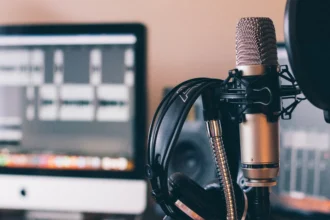The Responsibility of Social Media Platforms
Social media platforms like Facebook, Twitter (now X), and others have become the town squares of the digital age. They’re where we share ideas, connect with friends, and, yes, get our news. But with great power comes great responsibility, and these platforms have faced growing scrutiny over their role in spreading fake news and harmful content, especially through their advertising systems. From misleading political ads to dangerous health conspiracies, the content amplified by these platforms can have real-world consequences—think election interference or vaccine hesitancy. So, should these tech giants be held accountable for what gets promoted through their ad systems? Let’s dive into the debate, weighing both sides while keeping it real and grounded.
The Case for Holding Platforms Accountable
The argument for accountability boils down to one word: impact. Social media platforms aren’t just passive bulletin boards; their algorithms actively decide what gets seen by millions. When fake news or harmful content—like anti-vaccine ads or election misinformation—slips through their ad systems, it’s not a small oops. It can sway public opinion or even cost lives. For example, during the 2020 U.S. election, studies estimated that false stories reached millions of voters, often amplified by paid ads. The University of Oxford found that disinformation campaigns on social media influenced voter behavior in multiple countries, showing the stakes are high.
Platforms profit from these ads, so they have a financial incentive to keep the content flowing. If a shady group wants to push a conspiracy theory via targeted ads, the platform’s automated systems often greenlight it, as long as the payment clears. This happened in 2019 when Facebook ran ads with false claims about climate change, despite its public stance on fighting misinformation. Critics argue that this hands-off approach makes platforms complicit. They’re not just hosts—they’re gatekeepers with the power to filter content before it spreads.
Legally, platforms have dodged much of the blame thanks to Section 230 of the Communications Decency Act in the U.S., which shields them from liability for user-generated content. But ads aren’t the same as organic posts—they go through a review process, however flawed. If platforms are profiting from and curating these ads, shouldn’t they bear some responsibility for the harm they cause? Many say yes, pushing for stricter regulations or even lawsuits when platforms fail to act.
The Case Against Accountability
On the flip side, holding platforms fully accountable opens a tricky can of worms. First, there’s the scale problem. Facebook alone processes millions of ads daily, and expecting human moderators to catch every piece of fake news or harmful content is unrealistic. Even AI-powered systems struggle to spot nuanced misinformation—like an ad that’s technically true but wildly misleading. For instance, Twitter faced backlash in 2021 for allowing ads promoting sketchy crypto schemes, but defenders argued that policing every ad in real-time is a logistical nightmare.
Then there’s the free speech angle. Platforms argue that cracking down too hard on ads risks censoring legitimate voices. Where do you draw the line? If an ad questions a public health mandate, is it harmful or just controversial? Over-censorship could silence activists or minority opinions, especially in countries with less democratic governments. X, for example, has positioned itself as a free-speech haven, arguing that users should decide what’s true through open debate, not top-down moderation.
Finally, some say the blame lies with the advertisers, not the platforms. If someone runs an ad full of lies, shouldn’t they face the consequences? Platforms already have policies—like Facebook’s ad transparency tools or X’s community notes—that aim to flag or contextualize dodgy content. Expecting them to be perfect gatekeepers might shift responsibility away from the actual culprits: the people creating and funding harmful ads.
Finding a Middle Ground
So, where do we land? The truth is, total accountability might be as messy as total immunity. A balanced approach could work better. Platforms could be required to strengthen ad vetting processes—say, by mandating stricter checks for ads on sensitive topics like politics or health. They could also face fines for repeated failures, incentivizing better moderation without dismantling their legal protections entirely. For example, the EU’s Digital Services Act, rolled out in 2024, pushes platforms to be more transparent about ad content and take down illegal material faster. Early data suggests it’s reduced harmful ads, though it’s not a cure-all.
Transparency is another big piece of the puzzle. Platforms should make it easier for users to see who’s behind an ad and why they’re seeing it. X has taken steps here with its open-source algorithm approach, letting users peek under the hood of content promotion. Smaller platforms, like Reddit, have also experimented with community-driven fact-checking for ads, which could be a model for others.
Dont miss: Digital Minimalism: The Alarming New Trend Disrupting Online Users’ Habits
Conclusion
The question of whether platforms like Facebook and X should be held accountable for fake news and harmful ads isn’t black-and-white. They’re not just neutral pipes, but they’re also not the sole villains in the story. Their ad systems amplify content at scale, and that power demands responsibility—better vetting, clearer policies, and a willingness to learn from mistakes. But we can’t ignore the challenges of scale, free speech, and the role of bad actors. As users, we also have a part to play—checking sources, thinking critically, and calling out nonsense when we see it. The fix isn’t just on platforms; it’s on all of us to demand better while navigating the messy, connected world they’ve built. What do you think—where should the line be drawn?
Image source: proideators.com





